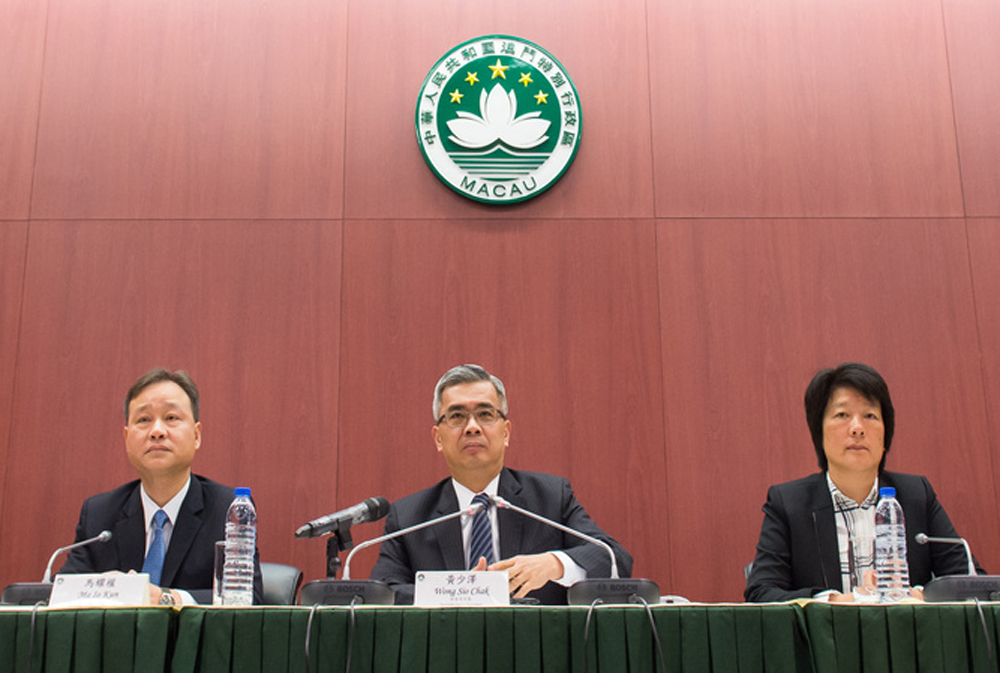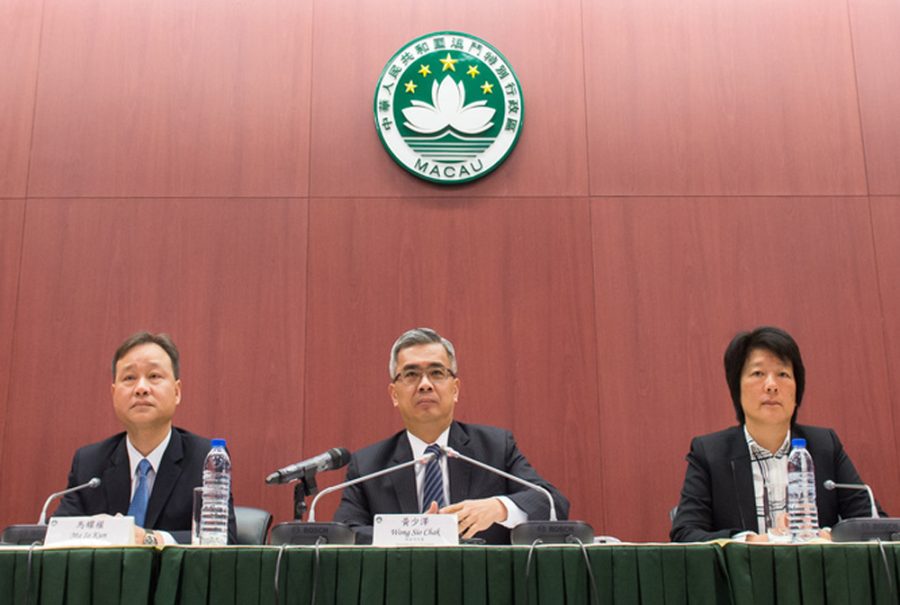Secretary for Security Wong Sio Chak said Thursday that the number of child sex abuse cases recorded in 2018 rose 50 percent year-on-year, calling for joint action by the different sectors of civil society to tackle the issue.
Wong announced Macau’s 2018 crime statistics during a press conference yesterday at the S. Francisco Barracks.
According to Wong, the total number of crimes recorded last year rose slightly by 0.5 percent (an increase of 72 cases) to 14,365. The number of recorded violent crime cases fell 21.1 percent (a decrease of 173 cases) from 820 cases in 2017 to 647 cases last year, he said.
Concerning the fact that that no or very few serious crime cases such as kidnapping, homicide and grievous bodily harm were reported last year, Wong insisted that Macau’s public security continued to be good and in a stable condition last year.
According to the crime statistics for last year released on the website of Wong’s office yesterday, the police recorded two homicides and seven cases of grievous bodily harm last year, one case down from 2017 and unchanged from 2017 respectively. No kidnapping cases were recorded in 2017 or 2018.
Wong said that 27 child sex abuse cases were recorded last year, an increase of 50 percent from 2017 when 18 such cases were reported. The policy secretary said that the large increase in such cases showed that various government entities, schools and parents needed to take joint action for the effective prevention of such cases, such as by improving communication and raising legal awareness.
Article 166 of the Macau Penal Code – sexual abuse of children – covers any kinds of sex acts carried out on minors aged below 14.
Article 166 states that a person who has had sexual contact with a minor under the age of 14 faces a prison term of between one and eight years. According to Article 166, the offender faces a prison term of between three and 10 years if the sex act involves sexual intercourse, anal sex or oral sex, or when the offender inserts an object, or any particular part of their body, into the minor’s vagina or anus.
Meanwhile, Wong said that while the number of theft cases recorded last year dropped by 6.5 percent (a decrease of 190 cases) from 2,937 to 2,747, there was a significant increase in the subcategory of recorded pickpocketing cases in public roads and on public buses last year. The police recorded 260 cases of pick pocketing in public roads and 284 cases of pickpocketing on public buses last year, 72 cases and 77 cases more than in 2017 respectively.
Among the 2,747 reported theft cases last year, 1,117 were pickpocketing cases which occurred in public places, 24 cases down from 2017, according to the website of Wong’s office.
According to Wong, the police investigated 1,195 fraud cases last year, a 31.3 percent increase (up by 285 cases), 125 cases of which were telephone scam cases, a decrease of 45 cases.
Noting that many victims of phone scam cases were higher education institution students, Wong said that the police would continue to strengthen their anti-phone scam campaigns in conjunction with the Tertiary Education Services Bureau (DSES) and the city’s tertiary education institutions.
According to the website of Wong’s office, the police recorded 63 arson cases last year, nine more than in 2017.
Wong said that none of the arson cases reported last year was related to triad activities and casino interests.
The police have not received any intelligence about unusual activities by triads connected with the city’s gaming sector, Wong said, adding that so far the development of Macau’s gaming industry had no negative impact on public security.
However, Wong acknowledged that illegal currency-exchange activities in local casinos are having a negative impact on Macau’s public security, pointing out that such activities have led to the occurrence of different kinds of criminal offences, such as robbery and fraud, and even mass brawls.
Wong said the police carried out 913 operations to combat illegal money-changing activities last year, adding that 3,050 illegal money changers were caught and then deported to the mainland, 2,269 of whom have been banned from Macau.
Coordinated by the Unitary Police Service (SPU), both the Judiciary Police (PJ) and the Public Security Police (PSP) have been carrying out operations – separately or jointly – to fight illegal currency-exchange activities on the premises or the margins of local casinos every day since October last year, Wong said.
Wong noted that while Macau’s public security continued to be good and in a stable condition last year, the situation in which non-locals commit criminal offences here is worsening as the city’s gaming sector and tourism sector continue to experience rapid development and the number of tourists has continued to rise enormously.
The policy secretary said that therefore the city’s public security landscape was becoming more complicated, which he said was bringing bigger challenges to the police forces’ law enforcement tasks.






